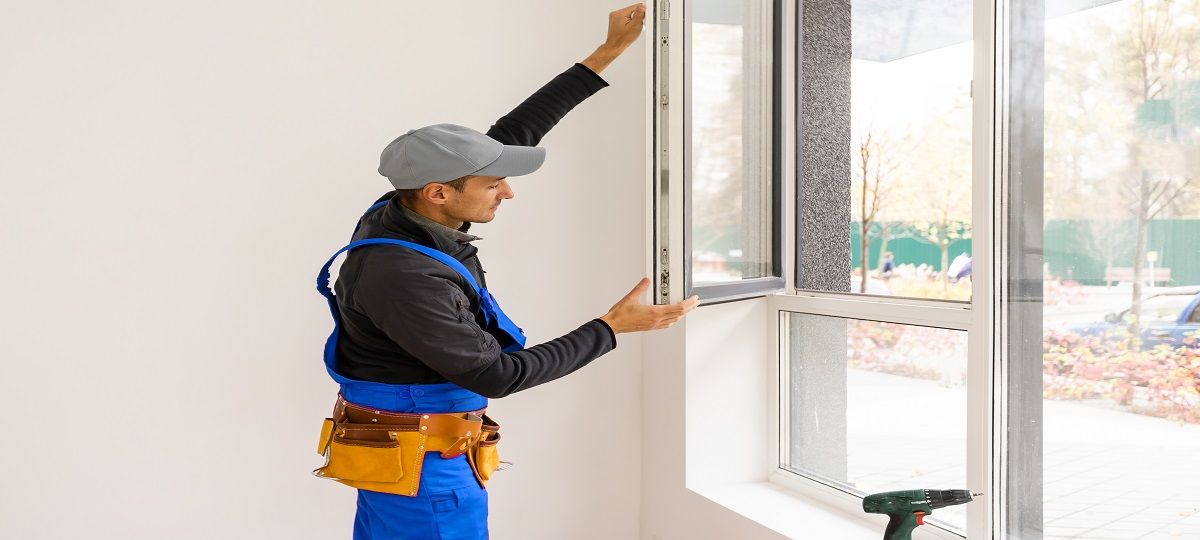
Alexander Macfarlane
Senior Associate Director, Building Consultancy & Private Projects


Senior Associate Director, Building Consultancy & Private Projects
New legislation is expected to come into force in the coming years that will require rental homes to meet new minimum energy efficiency standards. If the proposed legislation is given the go-ahead, you could face chunky fines if your property isn’t up to scratch.
Under proposals in England and Wales, all rental properties will need to have an Energy Performance Certificate (EPC) rating of C or above for new tenancies by 2028 and similar plans have been drawn up for rental homes in Scotland.
The proposed changes to (EPC) requirements are part of wider efforts to reach net zero by 2050.
But recent research suggests that there’s confusion about energy efficiency rules. Nearly half (47%) of landlords believed that regulations around EPC ratings were ‘guidance’ and not the law, according to the Mortgage Advice Bureau. Meanwhile, 18% of landlords weren’t aware of the proposed changes at all.
HOW CAN LANDLORDS IMPROVE THEIR EPC RATINGS?
If you want to lift the EPC rating of your rental property, you may be thinking: where do I start? Your EPC will have recommendations on how to do this, and while advice will naturally vary from property to property, here’s four upgrades you could consider.
1. LED lights
Swapping more inefficient lights, such as incandescent or halogen lights, for LED lights is one of the simpler ways to help nudge your EPC rating. Just check first that light fittings and bulbs are compatible. According to the charity Energy Saving Trust (EST), your tenants could save £65 a year on electricity bills too if you switch all the lights in your property to LED versions.
2. Roof insulation
Installing roof insulation is another good starting point. Up to 25% of heat is lost through the roof of an uninsulated home. The insulation required will depend on the type of roof you have. The typical installation cost for a mid-terrace house in England, Wales and Scotland could range from £420 for topping up existing loft insulation, to £590 for adding insulation to an uninsulated loft, according to EST.
3. Wall insulation
Insulating walls can be another valuable upgrade to your rental property. Roughly a third of heat is lost through the walls of an uninsulated home, says EST. The cost and scale of work will depend on a variety of factors, such as the type of property you have and the insulation system you use.
Cavity walls: If your rental property has cavity walls, consider filling the gap with insulation, such as foam or mineral fibre. If the cavity walls already have some form of insulation, it could be worth getting it inspected to ensure it hasn’t deteriorated and look to improve it further. According to our analysis of BCIS, you should budget for roughly£17 per sq. metre. For a typical three-bedroom, semi-detached house, this equates to approximately £1,700 (excluding VAT, professional fees and any other additional costs).
Solid walls: Insulating solid walls in older properties can be a very efficient way of improving a building’s performance and bolstering an EPC rating. It’s invariably a larger and more complex piece of work than insulating cavity walls. In very simple terms, it typically involves attaching rigid insulation board to the wall and then covering it,often with render. Expect to pay around £105 per sq. metre for the insulation,says BCIS, (again, excluding VAT, professional fees and other additional costs).
4. Heating systems
Overhauling a tired heating system is also important. Heating systems have an average life expectancy of 10 to 15 years.
A natural first step is to replace your boiler with a new, more efficient model. You could swap it for a similar system, such as gas or oil. Bear in mind that as part of ambitions to reach net zero,there’s a gradual move towards low carbon heating systems.
If you have the motivation and budget,consider future-proofing your property by installing underfloor heating too. It works well with both existing and new technologies coming through.
And if you have a well-insulated home, you may also want to look at installing a heat pump, which uses the natural environment to heat your property. They can be a hefty upfront cost and tenants will need to have a good grasp of the technology to make the most of this measure. It’s generally not recommended as a standalone solution for improving an EPC score.

WHAT SUPPORT IS AVAILABLE FOR LANDLORDS?
The government is behind a number of initiatives to help make homes more energy efficient, so it's worth double checking whether you qualify for any of these schemes. In some cases, support can be based on the eligibility of the tenant, rather than the landlord, as is the case with ECO4.
High profile initiatives include the Boiler Upgrade Scheme, which offers a portion of money towards the cost of swapping fossil fuel heating systems for a heat pump or biomass boiler in England and Wales. There are other initiatives in Scotland and Northern Ireland.
There’s also the Energy Company Obligation (ECO4) scheme and the Great British Insulation Scheme (formerly known as ECO+), which require major energy firms to help deliver green upgrades, such as insulation.
The government has also cut VAT on energy efficiency installations to 0% until 31 March 2027 in Great Britain. There are reports that this has been extended to Northern Ireland too.
Elsewhere, some lenders are offering borrowers incentives to make their properties more energy efficient.
Support and eligibility can differ between areas and countries so it’s always best to seek advice first.
A DESNZ (Department for Energy Security & Net Zero) spokesperson said: “We are determined make properties up and down the country as energy efficient as possible. Thanks to Government support, the number of homes with an energy efficiency rating of C or above is at 47% and rising, up from just 14% in 2010.
Landlords play an important role in improving some of our least efficient building stock and helping some of the most vulnerable householders, to lower their bills and stay warm at the same time.”
WHAT OTHER ADVICE IS THERE FOR MANAGING GREEN UPGRADES?
Legislation
Refresh your knowledge of existing and proposed legislation to ensure improvements are carried out as smoothly and effectively as possible.
For instance, under the energy efficiency proposals that have been drawn up, the cost cap for each property is expected to rise. This could change from £3,500 to £20,000 in England and Wales. A fabric-first principle has also been suggested which, if given the green light, would dictate the way in which you make upgrades – for example, you will need to upgrade your insulation before you can start installing a new heating system.
Approvals
Check whether you need any consents for the work you plan to carry out. Some improvements, such as external wall insulation, may fall under permitted development rights but interpretation can vary. If your rental property is listed or located within a conservation area, you will generally need to apply for planning permission. It’s worth noting that any work denied by a conservation officer can provide justification for an exemption from the Minimum Energy Efficiency Standards (MEES)regulations. You can read more about exemptions below.
Don’t forget, you may need building regulations sign-off for any completed work too.
Landlord-tenant relationship
Upgrading your rental property can be disruptive, so consider doing it before tenants move in. If tenants are already living in your property, keep an open and transparent dialogue with them and remember to give at least 24 hours notice before a visit. If Strutt & Parker manage your rental, we can act as the intermediary and ensure a good relationship is maintained with the tenants.
Exemptions
There’s a few reasons why you might be exempt from making energy-efficiency upgrades. If a surveyor determines that the works would damage or devalue the property, or if you can’t get the various third-party permissions – for example from the planning authority, tenant or freeholder – then you may qualify for an exemption, which is valid for five years.
Also, if you’ve spent up to the cost cap and the rental still doesn’t meet the minimum EPC rating, you can apply for an exemption too.
Professional help
It’s important to seek professional advice first to make sure that the upgrades you plan to make achieve your ultimate goal. The way that EPCs are currently assessed means there can sometimes be a disparity between what will boost an EPC rating and what will improve other factors, such as building efficiency.
It’s of course also recommended that you hire reputable and specialist contractors for any work you carry out, and our Building Consultancy team is available to provide tailored support to help you make property improvements focused on improving EPC ratings.